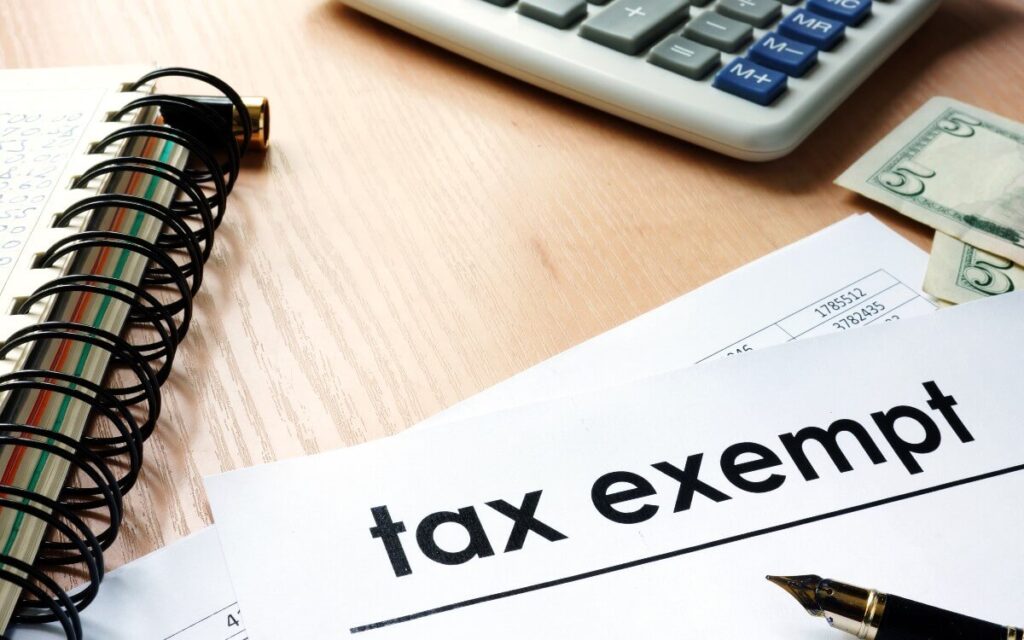As a Christ-follower, you have a vision that called you from your comfort zone into this meaningful adventure of advancing Christ’s kingdom by starting a church to serve your community.
Unfortunately, it’s easy to lose sight of your purpose in the often thick forest of financial and bureaucratic nuances, including tax exemption for churches.
Embarking on the journey of planting or starting a church requires studied insight into both statewide and federal tax considerations (property tax law, sales tax law, understanding do churches pay payroll taxes, etc…).
This understanding will help you avoid getting lost along the winding paths of organizational and financial prerequisites that are essential in establishing a vibrant, healthy church.
Are Churches Tax Exempt?
When considering the fundamentals of church establishment, it’s essential to understand: Are churches tax exempt?
Usually yes. However, the answer is more complicated when it comes to state and local tax exemptions available to your organization.
While churches are generally considered tax-exempt for federal income tax purposes, they may be responsible for paying certain taxes. Depending on your jurisdiction and legal structure, the exemptions available to your church vary.
Tax exemption for churches is a branch on the evergreen tree of financial stewardship that can advance the mission and vision of your organization. It’s therefore essential to identify what kind of exemptions your organization is eligible for.
When you understand to what extent churches are tax-exempt, you’ll avoid overpaying on taxes, which cuts your funding short for pivotal church activities.
In this article, we’ll answer the following:
- Are churches tax exempt federally?
- Do churches pay property taxes?
- Are churches exempt from sales tax?
Federal Tax Exemption
Congress is sensitive to the taxation and required tax reporting of churches. Tax-exempt churches are therefore not required to file the annual tax return that most other 501(c)(3) entities must file.
Notably, most churches are considered 501(c)(3) tax-exempt organizations, enjoying federal tax-exempt status — even without formal recognition of exemption from the IRS.
However, many churches choose to protect themselves and their donors by applying for formal IRS recognition as 501(c)(3) organizations. This ensures inclusion in the IRS database, offering transparency to donors and easing access to other exemptions at the state and local levels.
(You can learn about the benefits and drawbacks of seeking official IRS recognition as a tax-exempt church in our article: How to Start a Church Legally.)
Engaging a church lawyer can help your church evaluate whether it should apply for IRS recognition of 501(c)(3) status as well as assisting in taking advantage of all tax exemptions available to your church.
State and Local Exemptions
Federal income tax exemption is automatic for churches that satisfy the requirements of section 501(c)(3) of the Tax Code. However, state and local exemptions for churches — including property and sales tax exemptions — vary.
Do Churches Have to Pay Property Taxes?
In addition to federal tax exemption, your church may be eligible for exemption from property tax and other state-level exemptions.
However, the answer to the question: Do churches have to pay property taxes? depends on the jurisdiction your church operates and the use of the property owned.
In most states, churches are eligible for property tax exemption.
According to section 58.1-3606(A)(2) of the Code of Virginia, for example, churches are exempt from paying property taxes on real and personal property, including spaces the church uses exclusively for:
- Worship
- Where the minister resides
- Property used for ancillary and accessory purposes
- (As allowed under the local zoning ordinance, the dominant purpose of which is to support or augment the principal religious worship use)
In Prince William County, VA, these ancillary and accessory purposes allowed under the local zoning ordinance include:
- Homeless shelter
- Low-income housing
- Child care center
- School
- Food, clothing, or home furnishings distribution center
- Community or recreational center for charitable or educational activities
Unlike federal tax exemption, you must submit a written request to apply for tax-exempt status for church-owned property in many counties in Virginia. The application process may vary somewhat from county to county.

Are Churches Sales Tax Exempt?
Navigating sales tax exemptions for churches can feel like traversing a maze since every state has its own set of rules.
Some states may exempt churches on most, if not all, purchases made by a church (such as equipment and supplies used for worship services, office computers, furniture, etc.)
Additionally, some states exempt churches from the collection of sales tax on certain sales made by the church. The details of each state law must be consulted.
In states where churches are exempt from sales taxes, you must follow specific procedures to maintain your eligibility. This protocol varies by state, but standard practices include:
- Exemption certificate requirement. You must provide an exemption certificate to the seller for all tax-exempt purchases.
- The seller must keep the exemption certificate on file. If it’s incomplete or improperly filled out, the church must pay sales tax on the transaction.
- Payment methods. You must pay for tax-exempt items with church funds. Church employees must not use personal credit cards or personal checks for the transaction.
- Instead, paying with a church check or a church credit card is wise.
- Potential Refunds. In certain states, churches can seek refunds for sales taxes paid. This typically involves submitting receipts to the revenue department.
Federal Tax Exemption Does Not Apply to Local Jurisdictions
So, are churches tax exempt?
It’s a common misconception among many churches that automatic exemption from federal income taxes means exemption from all taxes.
In reality, state and local jurisdictions have the authority to form their own policies, which widely affect exemption from state and local level taxes for churches.
When it comes to property and sales tax, most states do offer exemptions for churches. However, policies and procedures vary by state.
It’s therefore essential to understand how your own state and county handle exemptions — and how your church can avoid missing out on tax breaks that will promote the healthy financial stewardship of your church.




